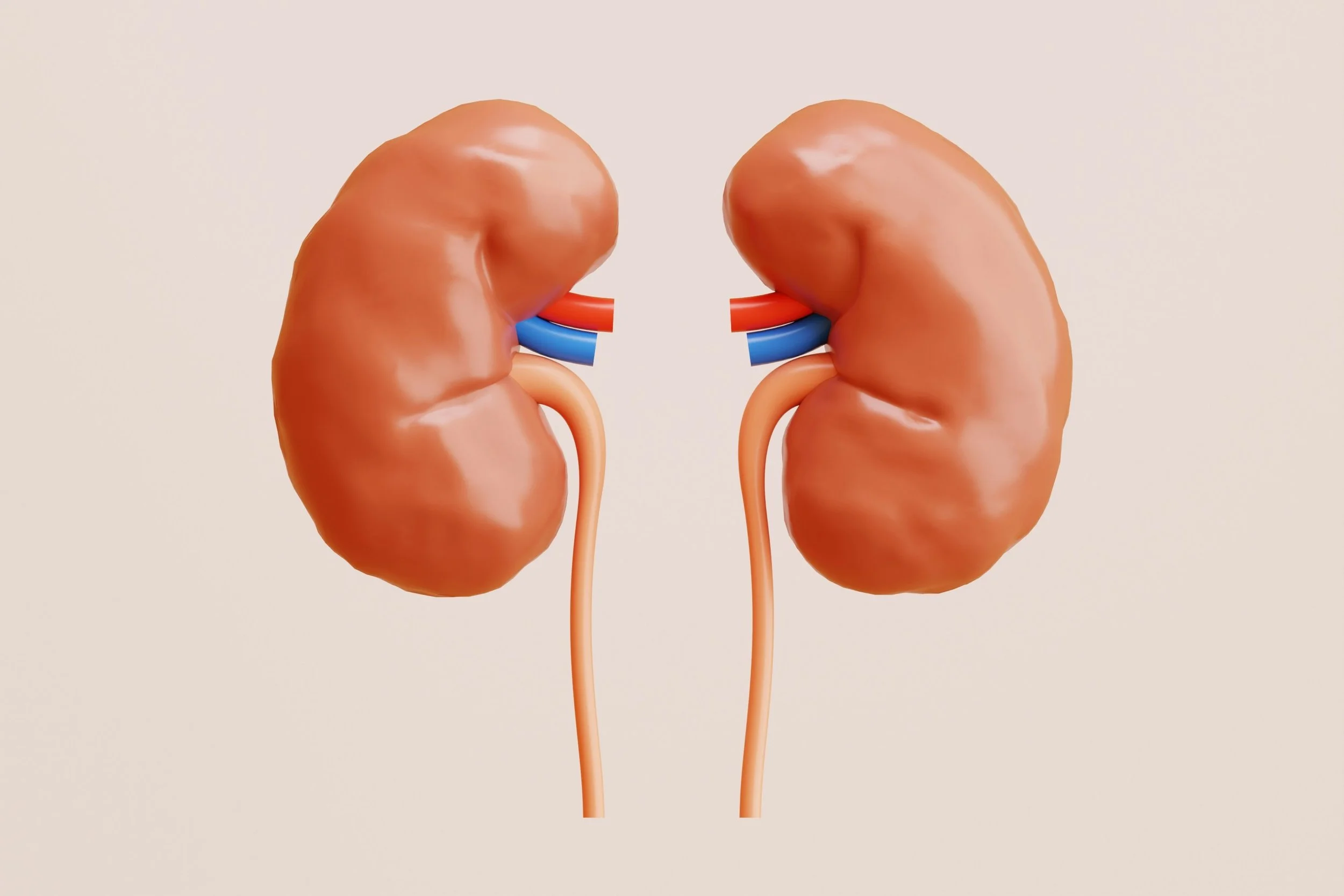The Creatine and Kidneys Confusion
Even in 2025, one myth refuses to die: creatine harms your kidneys.
This belief has lingered for decades, despite an overwhelming amount of clinical evidence showing the opposite. In healthy individuals, creatine supplementation does not impair kidney function. On the contrary, it may actually help in certain kidney-related conditions.
Where the Confusion Comes From
The issue centers on creatinine, a by-product of creatine metabolism. Because creatinine is freely filtered by the kidneys, it shows up in routine lab tests and is often used as a rough estimate of kidney function.
When people supplement with creatine, they naturally produce more creatinine. The resulting rise in blood creatinine is not a sign of kidney damage; it is simply a reflection of having more creatine in the system. Interpreting that bump as pathology is a mistake.
Creatinine Is Not Harmful
Creatinine itself is not damaging to the kidneys. It was chosen as a marker because it is easy to measure and, in people who are not supplementing, it tracks kidney filtration reasonably well. Once creatine enters the picture, serum creatinine loses reliability. Better tools include cystatin C and direct glomerular filtration rate (GFR) measurements, such as 51Cr-EDTA clearance.
What the Research Says
Randomized trials and controlled studies consistently show renal safety:
Lugaresi et al., 2013 – Resistance-trained adults taking creatine for one year showed no change in measured GFR by 51Cr-EDTA, despite higher serum creatinine.
Gualano et al., 2011 (NCT00992043) – Type 2 diabetics loaded 20 g day-1 for five days then maintained 5 g day-1 for 12 weeks. Kidney function remained stable by cystatin C and creatinine clearance.
Neto et al., 2020 – Double-blind trial using novel renal biomarkers found no evidence of injury after an initial 7-day 20 g day-1 loading phase followed by about seven weeks at 5 g day-1.
Pediatric autoimmune cohorts and older-adult studies likewise report no adverse renal effects, even in more vulnerable settings.
Across these investigations, serum creatinine rose modestly, but every precise renal metric stayed unchanged.
What About People With Kidney Disease?
The kidneys contribute to endogenous creatine synthesis. As kidney function declines, internal creatine production falls, reducing systemic availability and potentially affecting muscle mass, energy status, and overall function.
Because of this, researchers are exploring creatine supplementation in chronic kidney disease (CKD) and dialysis rather than advising blanket avoidance. Pilot trials are testing creatine-enriched dialysate solutions to counteract muscle wasting. Routine clinical use is not yet established, but early findings suggest creatine may offer more help than harm in these populations.
Key Takeaways
Creatine supplementation does not harm healthy kidneys.
A rise in serum creatinine is an expected metabolic effect, not renal injury.
Clinicians should use cystatin C or direct GFR methods when assessing kidney health in creatine users.
In CKD and dialysis, creatine may be beneficial because endogenous production is reduced.
Ongoing trials will refine dosing and safety guidelines for renal patients.
Recommended Reading
Seize the years,
David Propst | DMS-C, MPAS, PA-C | Jenerise Blog Guest Writer

